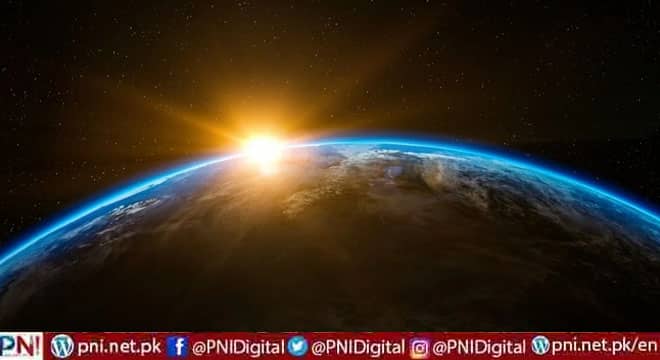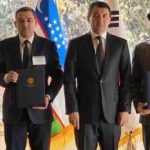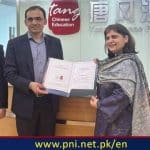ISLAMABAD, Mar 06 (APP):Speakers at a one-day introductory course on “science diplomacy and sustainability” held here Monday emphasized the proactive role of science diplomacy to address the climate change issue which is impacting globally.
The course was arranged by COMSTECH-the OIC Standing Committee on Scientific and Technological Cooperation.
The course was addressed by the Chairman ATRI Advisory, Malaysia and the former Science Advisor to the Prime Minister of Malaysia, Prof. Zakri Abdul Hamid, and Additional Secretary, Ministry of Foreign Affairs, Mr. Kamran Akhtar.
The welcome address was delivered by the Coordinator General, COMSTECH, Prof. Dr. M. Iqbal Choudhary and the Adviser COMSTECH, Dr. S. Khurshid Hasanain, delivered the introductory remarks.
Dr. Zakri delivered two lectures, and explained in both lectures, that the drive towards sustainability and preservation of biodiversity and the earth’s resources in the face of climate change is more challenging in the Global South which also includes the 57 countries of the Organization of Islamic Cooperation (OIC).
He said that these countries which are still in need of rapid economic development face the consequent negative impacts of expanded economic growth on the environment and biodiversity.
He said that this challenge requires a careful scientific balance between promoting development and enabling conservation.
He discussed the possible course of action of various stakeholders on the basis of science diplomacy. Prof. Zakri stressed the need for an enhanced role of science in multilateral negotiations to overcome the problems of climate change and loss of biodiversity.
Mohammad Kamran Akhtar, Additional Secretary (ACDIS) from the Policy Planning and Public Diplomacy Division of the Ministry of Foreign Affairs spoke about the essentials of science diplomacy in different areas of international negotiations emphasizing its role as a soft power to advance diplomatic objectives and create goodwill.
He described Pakistan’s contribution to multinational scientific initiatives such as the CERN LHC collaboration in physics.
With regards to the control on greenhouse gas emissions he emphasized that while it is a common problem of all nations, there has to be a graded responsibility for reduction in emissions based on the contributions of various nations towards the current state of the environment.
Prof. Dr. M. Iqbal Choudhary, the Coordinator General of COMSTECH speaking on the occasion explained the role of COMSTECH in the domain of science diplomacy.
He mentioned its ongoing initiatives on health and medicine in sub-Saharan Africa, its cooperation on food security with concerned organizations and its award of research grants to scientists in member states as examples of science diplomacy.
He pointed out that COMSTECH is leading the OIC effort to mobilize the resources of the 15 leading OIC member states (OIC-15 Dialog Platform) to cooperate on major science and technology initiatives for economic development.
He welcomed the diplomats representing a large number of OIC and non-OIC countries, and the participants of the course, and expressed the hope that it may lead to enhanced cooperation in science and technology through the aegis of COMSTECH.
The audience included a large number of the Diplomatic Corps in Islamabad, officials of the Ministry of Foreign Affairs, academics, and professionals from the field of sustainable development.
Follow the PNI Facebook page for the latest news and updates.









